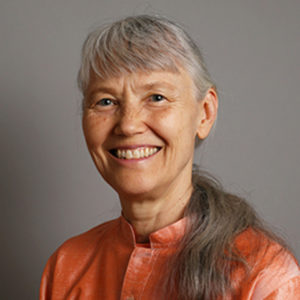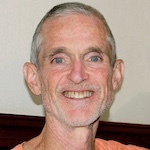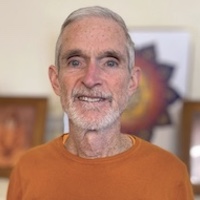Resolutions That Last: The Art of Sustainable Spiritual Practice
by Swami Vidyananda
For many years, I’ve given a talk on New Year’s resolutions at our annual Integral Yoga New Year’s Retreat. I focus mainly on setting achievable goals for a regular spiritual practice of poses, breathing, relaxation and meditation. Here’s a few suggestions from that talk:
- Set a small, reasonable goal for a certain amount of time for each practice you want to do daily. Then immediately cut it in half. That becomes your daily minimum. Try that. If you don’t succeed at that, then cut that time in half. Keep cutting until you find how much you really will do, even if it’s one minute for each practice. Then stick to that as your daily minimum.
For example, Swami Satchidananda recommends meditating a minimum of 15 minutes twice a day for meditation. So, when I started my regular practice, I set a minimum of 15 minutes once a day (which equaled half the time I wanted to do). That’s been my rock solid minimum for many years. Most days I’ll do far more, but if I’m very sick in bed, I lie there and do 15 minutes of japa. Even if the meditation is unfocused, I’ve still met my goal.
Setting a small goal and accomplishing it daily develops will power and gives you confidence in your own power to meet your goals in life, not just in spiritual practice.
- Have a chart where you check your practice off daily. Studies have shown tracking your progress is one important key to success.
- Make some small change to your environment to make it easy to do your practice. For example, if you want to do Hatha Yoga daily, leave a mat out in a corner of a room and don’t put it away. Then you can take a few minutes to do Hatha Yoga with no need for any preparation. Researchers found that as little as five minutes of moderate-to-vigorous activity a day may have a positive effect on health in the long term.
- Make your Yoga as yummy as possible. Make it feel as good as you can. You’re more likely to stick with it if you enjoy it while you do it. Challenge yourself for the fun of it.
- Have a purpose partner, a supportive friend with whom you check in about your progress toward keeping your goals. This is another technique studies have shown to help you meet your goals. It’s best to set it up so you tell them how you did and they don’t express a negative judgment. They don’t offer advice, or chide you, unless you ask them to do so that day. They can offer a gentle word of support.
- Don’t expect bliss in your practices every day, especially meditation. You’re often just cleaning out what will keep you from being focused and relaxed the rest of the day.
We often make the mistake of giving up if the meditation is unfocused or if painful thoughts come up. We underestimate the immense benefit of getting to know the mind on every level. Carl Jung said, “Until you make the unconscious conscious, it will direct your life and you will call it fate.” Our undigested past conditioning leads to knee-jerk reactions that cause so much pain and misunderstanding in our lives. Sitting with your mind for a given amount time, no matter what comes up, is a powerful, life-changing practice. You want to use some self-soothing technique like mantra repetition or simple breath awareness so that the mind knows it is loved and accepted exactly like it is, and it’s safe to let you see what’s going on. When you know your unconscious patterns, you can use the tools of Yoga skillfully to help you change them.
- Prepare for backsliding. If you remind yourself that most people slip sometimes before they succeed, you’ll be less likely to give up when you do miss a day or a few. You’ll think, “Yes, that’s normal” and get back on the routine vs. telling yourself “I can’t do this!”
All these hints can be summarized in a saying I heard from our Ashram comedian Swami Murugananda: “Start slow, and then taper off.” To which I add: After you taper off, stick with your brief yummy Yoga. If you make it feel good, your minimum will gently, automatically get longer because you’re feeling joy and seeing your good habit build every day.
“Come, come, whoever you are
Wanderer, worshiper, lover of leaving.
It doesn’t matter
Ours is not a caravan of despair.
Come, even if you have broken your vows a thousand times.
Come, yet again, come, come.”
~Rumi
Swami Vidyananda, E-RYT 500, C-IAYT has been practicing Yoga since 1969 and teaching Integral Yoga internationally since 1973. For many years she traveled with Sri Swami Satchidananda serving as his translator into French. She has taught in many therapeutic programs, including for people with cancer, Yoga for university students with eating disorders, and Yoga for children with learning disabilities. She has taught Yoga for Stress Relief around the world. She has served as a Yoga Therapist since 1979. She co-developed the Integral Yoga Stress Management Teacher Training program with Swami Ramananda and has taught it for over 25 years. Swami Vidyananda lives in Yogaville, Virginia, where she teaches meditation, Raja Yoga, and all branches of Integral Yoga. She also serves as chairperson of the Integral Yoga teachers Council, and as director of the Integral Yoga Therapy Training Program.








